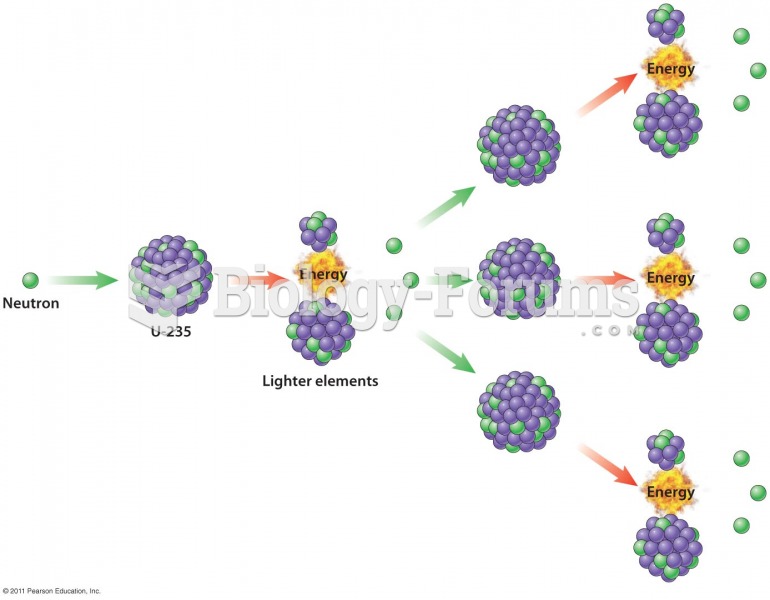|
|
|
Drying your hands with a paper towel will reduce the bacterial count on your hands by 45–60%.
Patients who cannot swallow may receive nutrition via a parenteral route—usually, a catheter is inserted through the chest into a large vein going into the heart.
Blood is approximately twice as thick as water because of the cells and other components found in it.
All patients with hyperparathyroidism will develop osteoporosis. The parathyroid glands maintain blood calcium within the normal range. All patients with this disease will continue to lose calcium from their bones every day, and there is no way to prevent the development of osteoporosis as a result.
In the United States, there is a birth every 8 seconds, according to the U.S. Census Bureau's Population Clock.







